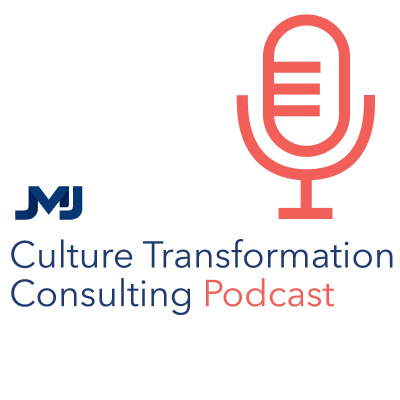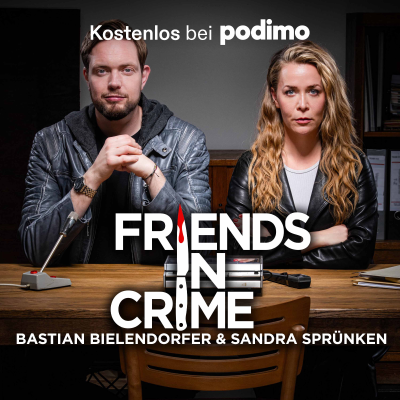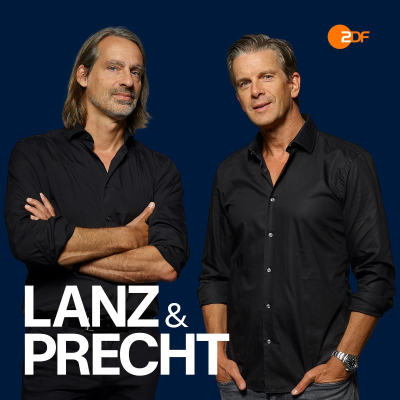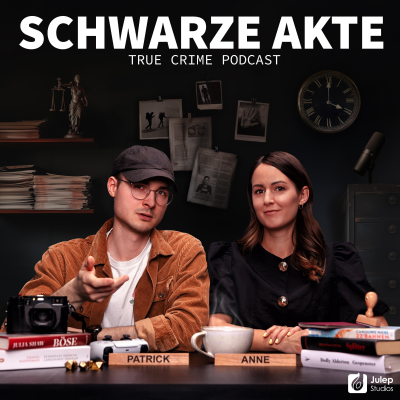
Culture Transformation Consulting powered by JMJ
Podcast von JMJ Culture Transformation Consulting
Nimm diesen Podcast mit

Mehr als 1 Million Hörer*innen
Du wirst Podimo lieben und damit bist du nicht allein
Mit 4,7 Sternen im App Store bewertet
Alle Folgen
10 FolgenIn our latest podcast, JMJ’s Alan Palmer is joined by Mike Porter [https://www.linkedin.com/in/mike-porter-087b588/], Intel Project Director, and Jim Hayde [https://www.linkedin.com/in/jim-hayde-422ab38/?originalSubdomain=ie], Operations Director at Jacobs Engineering, to reflect on the safety achievements of Intel's [https://newsroom.intel.ie/wp-content/uploads/sites/26/2019/11/intel-ireland-milestones.pdf] "Fab 14" major capital project which took place in Ireland 25 years ago. During the discussion, Mike and Jim share many stories and anecdotes that highlight how they created an aligned, collaborative safety culture resulting in an amazing five million worker-hours without a fatality. The project was completed with a cost saving of 7%.
Earlier this year, JMJ and The Bennett Institute for Public Policy at the University of Cambridge [https://www.bennettinstitute.cam.ac.uk/] released a study titled, Sustainability: Corporate culture and leadership perspectives [https://www.jmj.com/insights/lp/sustainability-corporate-culture-and-leadership-perspectives/]. The research asked global business leaders across a range of sectors to share attitudes, barriers, and enablers of successful corporate sustainability strategies from a leadership and culture standpoint. In the latest edition of JMJ’s Culture Transformation Consulting podcast, Jeff Williams, CEO of JMJ and the Bennett Institute’s Prof. Diane Coyle [https://www.bennettinstitute.cam.ac.uk/about-us/person/diane-coyle/] discuss the study’s purpose, methodology and key findings including: * How organizations define corporate sustainability and ESG * The internal and external pressures that make corporate sustainability a business imperative * Challenges to successful implementation * How people at different levels of organizations perceive the role of leadership and culture in driving sustainability transformation * Advice for leaders setting out on a sustainability transformation journey This is the first in a series of podcasts looking at the different aspects of sustainability. Be sure to tune in for future broadcasts when Jeff will focus on the findings from the perspectives of: Culture; stakeholders and drivers; leadership and people.
In conversation with Jay Greenspan, Craig Martin talks about the construction [https://www.jmj.com/industries/construction-consulting/] company's safety journey and shares some of the inspirational stories that have shaped his lifelong commitment to an Incident and Injury-Free™ workplace.
TRIGGER WARNING: THERE IS A SHORT CLIP OF HANAN WAHABI GIVING EVIDENCE AT THE GRENFELL INQUIRY AT THE BEGINNING OF THIS PODCAST. In this episode, Gill Kernick and Matthew Price go back to the start, to the Grenfell Tower fire to look for where hope for change might emerge. Joined by Hanan Wahabi, a former resident and survivor of the fire, they explore grief and where hope can be found in the aftermath of disasters. Hanan’s brother Abdul Aziz and his family died on the 21st floor at Grenfell. They also speak to Julian McCrae from Engage Britain - a new charity which hopes to drive change through bringing different and diverse people together to influence policy and change. If we listen to, and engage with diversity of thought, might our collective wisdom be the way to prevent catastrophes? Might compassion and humanity be as important as regulations?
In this episode, Gill Kernick and Matthew Price look at our obsession with blame and blame-avoidance and how that cements our inability to learn. They speak to the former government advisor Salma Shah and Times Radio correspondent Charlotte Ivers about the relationship between politicians and the media and how blame plays a central role. They also speak to Christopher Hood Emeritus Professor of Government at All Souls Oxford and author of The Blame Game - Spin, Bureaucracy, and Self Preservation in Government. He describes how finger-pointing and mutual buck passing is a familiar feature of politics and that blame avoidance pervades government and public organisations at every level. They explore the likelihood of this blame obsession changing and look at the role of consequences in enabling change and learning.























